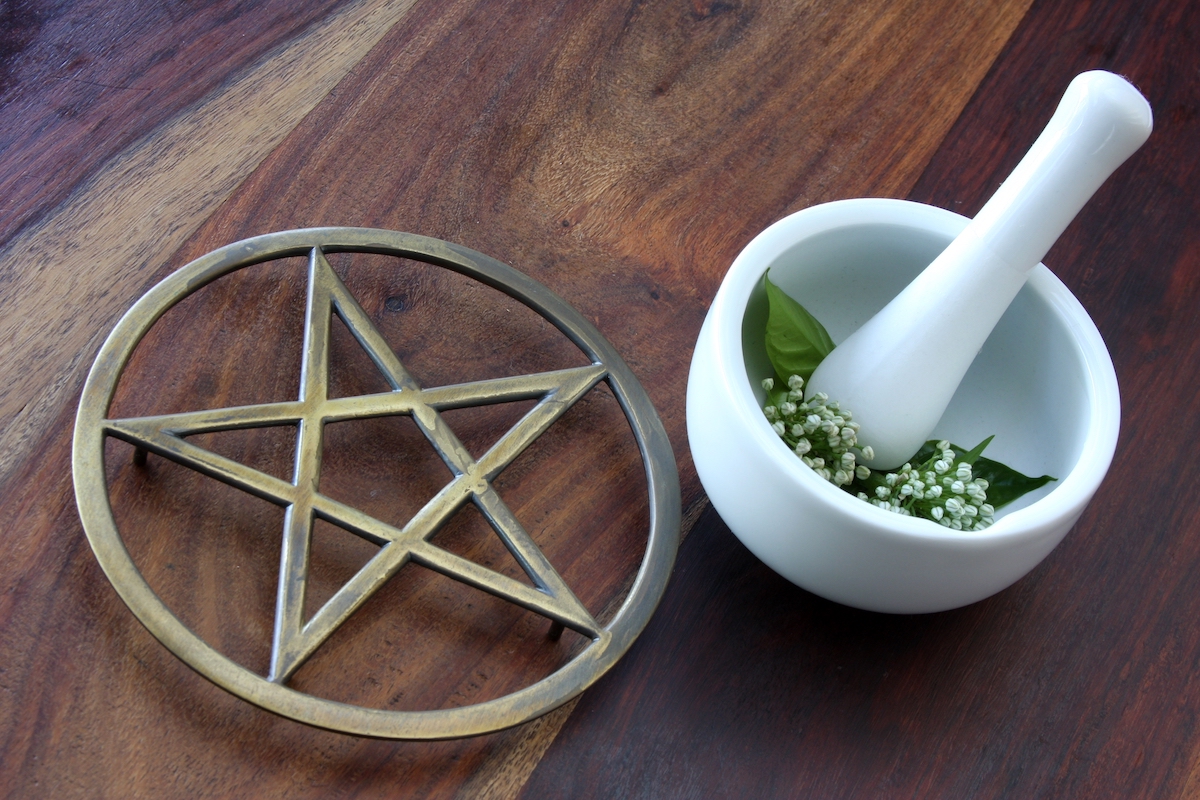
Pro-herbal supplement voices often claim that the marketplace has a bias in favor of Big Pharma while being less open to herbal medicines.
The late, great, social commentator and humorist, Bill Hicks, once said of cannabis prohibition, “…but how can you make nature against the law?…Isn’t that kind of …unnatural?”
The same innocently logical thought has occurred to many of us drug-law reformers. It’s cold comfort to remember that many other members of the vegetable kingdom have been equally, and unfairly scapegoated.
Historians have long pointed out that accusations of witchcraft and sorcery around the world are often directed at herbalists. The “green women” who lived in the woods of medieval Europe, and knew medicinal plants, were targeted by a church that recommended prayer to cure sickness while shunning both the new science of medicine, and the old herbalism that preceded it. Many such women were convicted of heresy, tortured, and executed by fire, between the 14th and 17th Centuries.
This is not to say that the green women weren’t sometimes also peddling superstition: magic bundles in pouches, amulets and so forth, were part and parcel of the practice.
Therein lies the problem: because traditional practices are unregulated by definition, nonsense cannot easily be clearly differentiated from genuine knowledge; thus a charlatan is as likely to get a free pass as a healer.
Some may have noticed the recent flummox around kratom, a South-East Asian relative of coffee whose bitter leaves are the miracle supplement of the moment. Anecdotal claims show the plant helps everything from opiate addiction to chronic pain at a fraction of the cost of pharmaceuticals. So of course, by the end of 2016, the DEA was on the verge of an emergency listing of kratom as Schedule 1, or a substance regarded as having the same high potential for abuse as heroin. Tens of thousands of users, galvanized by the American Kratom Association, swung into high gear and flooded the DEA with their stories of hope and fears of despair.
In an almost unprecedented show of responsiveness to public opinion — which included especially persuasive arguments from veterans with PTSD — the DEA swiftly reversed itself and decided to play cautious: study first, ban later, or maybe even regulate instead.
For now anyway, kratom is still being sold online and over the counter at head shops.
Pro-herbal supplement voices often claim that the marketplace has a bias in favor of Big Pharma while being less open to herbal medicines. But it’s actually much easier, and cheaper, to bring an unregulated, untested, herbal product to market than a pharmaceutical.
It all comes down to the claims that one is allowed to make. Rigorous clinical testing costs millions of dollars, but allows drug-makers to be specific about which conditions a substance helps and what known side-effects exist. Herbal supplement manufacturers don’t have to do this, so can’t make such claims. Instead, they rely on other kinds of advocacy, such as a high-visibility celebrity who swears by their supplement.
It’s sobering to realize what vast amounts of money are in the balance. According to Global Industry Analysts, Inc., the herbal medicine market is poised to reach $115 billion by 2020. It’s a figure dwarfed by the $1.6 trillion projected for the pharmaceutical market in that same year (in research by PWC Global), but it’s still a big number. It’s naïve to think that corporations peddling “natural” products are categorically more high-minded than any others, and it stands to reason they’ll resist “unnecessary” increases to production, such as clinical trials, or possible deterrents to sales like warning labels.
It remains wise to do your own research whatever type of medicine you choose.
Some plant prohibitions are as silly as they are sinister; in February 2009, Fox News ran a story about Valentine’s Day was banned in Saudi Arabia. The holiday is deemed un-Islamic by its assumed encouragement of trysts between unmarried lovers. Red roses, symbol of both lust and romantic love, were duly banned and subsequently only available by special order from black-market sources who sometimes had to “deliver bouquets in the middle of the night or early morning, to avoid suspicion,” as one renegade florist anonymously disclosed to the Saudi Gazette.
So, does this mistrust of certain plants, flowers, and fungi, all originate from religion?
Abrahamic religions argue about much but share a similar origin myth of the first human couple in the garden who damned us all by consuming the “forbidden fruit” of the Tree of Knowledge of Good and Evil. The Hebrew word “peri,” which could refer to any number of seed-bearing fruits, with figs and pomegranates being early contenders, was translated by a fourth century punster named Jerome into the Latin word “malus,” which could mean either apple or evil.
Innocent apples have taken the rap for causing humanity’s fall from grace ever since.
I guess Cannabis and other herbal medicines have gotten off pretty lightly in comparison.



Leave a Reply